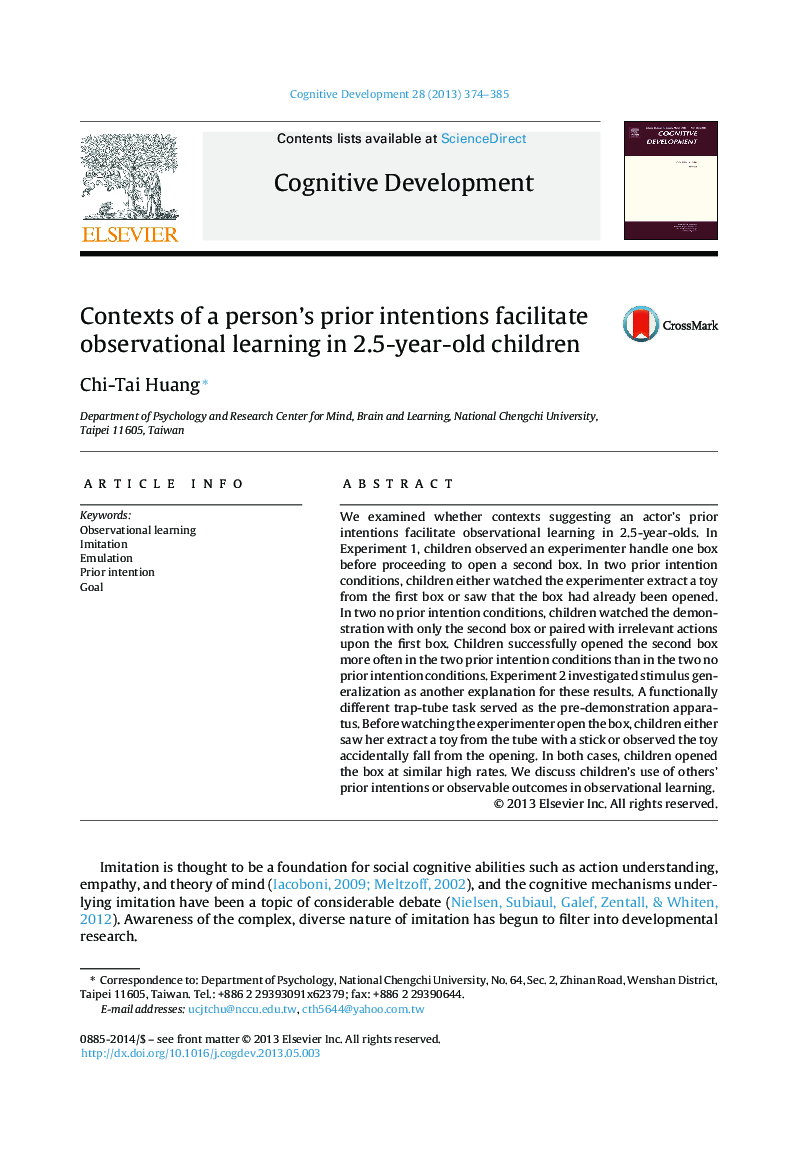| Article ID | Journal | Published Year | Pages | File Type |
|---|---|---|---|---|
| 916542 | Cognitive Development | 2013 | 12 Pages |
•Prior intention in context facilitates observational learning in 2.5-year-olds.•Both prior intention and availability of affordances promote innovation of an emulative strategy.•Information about prior intention generalizes across objects with different affordances.•Stimulus generalization is a useful paradigm for assessing intention transfer in observational learning.
We examined whether contexts suggesting an actor's prior intentions facilitate observational learning in 2.5-year-olds. In Experiment 1, children observed an experimenter handle one box before proceeding to open a second box. In two prior intention conditions, children either watched the experimenter extract a toy from the first box or saw that the box had already been opened. In two no prior intention conditions, children watched the demonstration with only the second box or paired with irrelevant actions upon the first box. Children successfully opened the second box more often in the two prior intention conditions than in the two no prior intention conditions. Experiment 2 investigated stimulus generalization as another explanation for these results. A functionally different trap-tube task served as the pre-demonstration apparatus. Before watching the experimenter open the box, children either saw her extract a toy from the tube with a stick or observed the toy accidentally fall from the opening. In both cases, children opened the box at similar high rates. We discuss children's use of others’ prior intentions or observable outcomes in observational learning.
